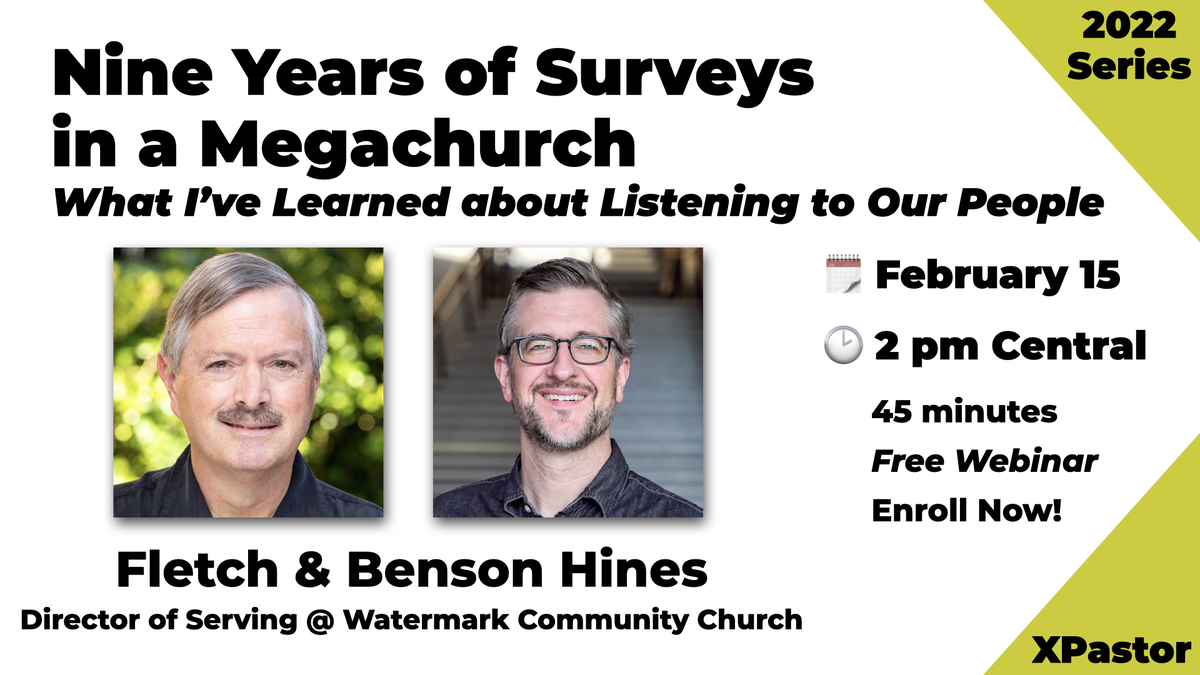I caught a flight out of Denver, still celebrating the ministry impact that was clearly evident at the church I had just visited. As I traveled, I began to compare and contrast it with other churches I have consulted with over the last two years. Because of what I do, I find myself working and speaking to growing churches. As you probably know, less than twenty percent of all churches in America are growing numerically—we can learn some critical things from them.
Obviously, they are doing something right and it is translating into God blessing them with numerical growth and spiritual impact in the lives of more people. As I reviewed the list of churches that I had good knowledge of, I noticed four characteristics that seemed to be true in each, regardless of denominational affiliation, governance structure, regional location, or theology. They range in size from three hundred in worship to several thousand per week. By now you may be wondering what this diverse expression of the Body of Christ could possibly have in common. They all excel in these four areas:
- Teaching and worship
- Creating authentic biblical community
- Ministering to the next generation
- Engaging in outreach
Let’s take a look at each characteristic more in depth.
Great Teaching and Worship
Every growing church I have observed creates a dynamic worship time featuring relevant, quality worship and effective, consistent teaching from God’s Word. This experience can vary greatly from church to church, but worship and teaching are integrated, creating a time for people to encounter and respond to God. I would define effective teaching as a consistent effort to help the hearer understand what the Bible says and how they will benefit from incorporating these principles into their daily lives. Teaching and worship serve these churches as a common experience for the whole body but are clearly integrated to the other core ministry areas. The pastor and other leaders use this time to continually cast vision to remind everyone what they believe God has called them to be and to do.
Authentic Biblical Community
When I speak about Authentic Biblical Community, I am not necessarily speaking about small groups. ABC can occur in several forms. The churches that move their people into this kind of experience don’t all follow the same format, but they are all committed to a similar understanding of ABC and its purpose and priority in every believer’s life. You won’t spend much time at any of these churches without learning that if you are not engaged in ABC, you are missing something vital in your spiritual life. Part of the culture at each of these churches is an expectation that people will and should move toward ABC as they are fully assimilated into the local church body.
Authentic Biblical Community is characterized by a couple of key components. The first is a deep, consistent commitment to care for one another. Care is not seen as the primary role of paid staff or leaders, but as something that all are called to give and receive. It is amazing to do a study of the New Testament Epistles and see how often Paul used the term “one another.” We are commanded to instruct on another, love one another, pray for one another, bear one another’s burdens, etc. These commands can’t be lived out at a distance. They require us to be closely connected with each other. The other key component to ABC is a commitment to growth. God wants us to grow spiritually—that can’t happen in a vacuum. We need others encouraging us; we need to encourage others. Lining people up and lecturing to them does not produce this kind of growth. As we get to know, love, care for, and encourage one another, lives change!
Authentic Biblical Community can’t be experienced without cost. People must see the value of living life together. Church leaders must create time, space, and leadership equipped to help people find and connect with others very intentionally. For this to occur effectively, group size needs to be limited and people need to commit to regular attendance for a season.
Next Generation Ministry
The third characteristic I see in growing churches is a priority to deliver high quality ministry to the next generation. These are ministries where kids often bring their parents and where youth are plugged in and engaged in a relevant way. Environments are created to support ministry strategy and are led by quality staff leadership and highly committed volunteers. Families readily experience safe, secure environments where they are comfortable leaving their children. Many churches provide priority parking for families with young children and special visitor/check-in areas to serve their specific needs.
Youth groups are given a clear identity within the church and have dedicated space to support the mission and strategy of this age segment. Youth ministry, and sometimes college ministry, is staffed with people who are good at recruiting, training, deploying, and caring for the volunteers who share their lives with the young people being served.
Many of these churches have also discovered the value of doing a large group/small group model of ministry in all next generation areas. The young people learn to live out Authentic Biblical Community. They develop relationships with adult shepherds who can help them apply biblical principles to their lives. This model makes recruiting volunteers easier as only a few need to have upfront teaching and presentation skills. All that is required for the vast majority is that they are growing believers who want to serve by ministering and caring for a small group of young people. A non-negotiable that is evident in each church is an overarching theology that the church is there to support and to help parents minister to their kids, not to replace them. This viewpoint shapes their strategies and translates into family events, parenting training, and family resources to apply what is being taught on Sundays.
Outreach
The last characteristic is certainly not the least. It is, in fact, why God has called us to gather and grow. Growing churches are very missional. They understand they don’t exist for themselves, but for the community they have been placed in and for the whole world. Most seem to have a good blend of local service and outreach, as well as a commitment to cross-cultural ministry. Focused and ongoing service to the local community is developed after carefully studying the needs of the area, as well as the gifts and passion within their church. Biblical outreach should always include a blend of good works with good news. One element should never stand without the other. Churches with this kind of external focus also do a good job of evaluating their effort and impact to be sure they stay on track.
It should go without saying that any effective ministry is undergirded with prayer. All of these churches practice a dependence on God that is demonstrated by prayer. No work can have a significant spiritual impact without plugging into our source of power, provision, and protection. God has a plan and purpose for each local church. We need to give ourselves to finding and doing what He has created us for. This is true of individual believers, but I believe it is also true for churches.











